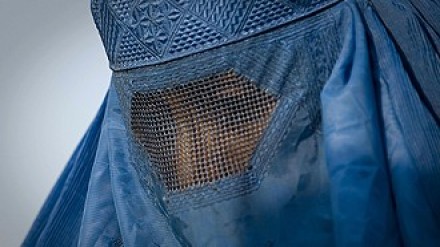
But a political crisis threatening the Belgian government and objections from France's constitutional watchdog mean the controversial measures might not make it into law.
Belgium's parliament was to vote on the law after its home affairs committee unanimously backed a nationwide ban on clothes or veils that do not allow the wearer to be fully identified, including the full-face niqab and burqa.
With both the governing parties and the opposition supporting the measure, Thursday's vote is expected to approve the draft law.
It would allow fines of 15-25 euros (20-34 dollars) and/or a jail sentence of up to seven days, for anyone ignoring it unless they had police permission to wear such garments.
But a party is threatening to pull out of the ruling coalition unless talks between the French and Dutch-language communities on power-sharing are not finalised in 24 hours.
And that means that the day's proceedings in parliament could yet be disrupted.
The French government said Wednesday it would ban Muslim women from wearing a full-face veil in public, despite a warning from experts that such a law could be unconstitutional.
The spokesman for President Nicolas Sarkozy's government said a bill would be presented to ministers in May and would seek to ban the niqab and the burqa from streets, shops and markets and not just from public buildings.
Most Muslim women, in France's immigrant communities and around the world, do not wear a full veil, but the niqab, which covers the face apart from the eyes, is widely worn on the Arabian peninsular and in the Gulf states.
"We're legislating for the future," government spokesman Luc Chatel told reporters after a cabinet meeting chaired by Sarkozy.
"Wearing a full veil is a sign of a community closing in on itself and of a rejection of our values," he added.
Last month however, the State Council -- France's top administrative authority -- warned Sarkozy against a full ban on the veil. It suggested instead an order that women uncover their faces for security checks or meetings with officials.
In France, as in Belgium, there is strong parliamentary support for such a ban and the government is determined to press ahead.
According to Chatel, Sarkozy told his cabinet the veil was an "assault on women's dignity". Human Rights Watch warned against such legislation, in a statement issued late Wednesday criticising the Belgian initiative.
"Bans like this lead to a lose-lose situation," said Judith Sunderland, senior Western Europe researcher at Human Rights Watch. "They violate the rights of those who choose to wear the veil and do nothing to help those who are compelled to do so."
There was no evidence that wearing the full veil in public threatened public safety, public order, health, morals, or the fundamental rights and freedoms of others, she added.
"At a time when Muslims in Europe feel more vulnerable than ever, the last thing needed is a ban like this, treating pious Muslim women like criminals won't help integrate them," Sunderland added.





1732618327-2/Untitled-design-(7)1732618327-2-270x192.webp)











COMMENTS
Comments are moderated and generally will be posted if they are on-topic and not abusive.
For more information, please see our Comments FAQ